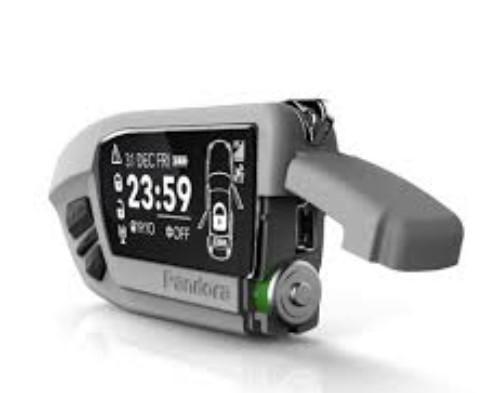Car key grabbers are becoming an increasingly pressing concern for vehicle owners. Essentially, these devices are employed by thieves to intercept the signals from car key fobs to unlock and start cars without the need for the actual keys. As technology progresses, the methods used by criminals to gain unauthorized access to vehicles also evolve, making the traditional key-and-lock system vulnerable to high-tech intrusions.
The relevance of car key grabbers in discussions around vehicle security has escalated with technological advancements. Modern vehicles come equipped with keyless entry systems that, while providing convenience to the user, also open up new avenues for exploitation by tech-savvy criminals. This situation is further exacerbated by the ready availability of these devices online, making it crucial for car owners to understand the risks involved and the preventive measures they can take.
In light of these developments, it’s important for vehicle owners to stay informed about the latest in car security technology and the potential threats posed by devices like car key grabbers. As we delve deeper into the specifics of these devices, their operational mechanisms, and the preventative strategies you can employ, it becomes clear that awareness is the first step towards protection.
What is a Car Key Grabber?
A car key grabber is a clandestine electronic device designed to intercept and replicate the signal from a car’s key fob. By capturing these signals, criminals can unlock and start a vehicle without the actual key. This method of theft relies on exploiting the wireless communication between the car and its key fob, which is intended to provide convenience to the user.
How Car Key Grabbers Work
Car key grabbers operate by either capturing a signal transmitted by a key fob when the car owner locks or unlocks the vehicle, or by amplifying the communication range between the car and its key fob. Once the device intercepts the signal, it can replicate it to unlock the vehicle at a later time. This technique is particularly effective against vehicles with keyless entry systems, where physical keys are not required to unlock or start the car.
Types of Car Key Grabbers
Car key grabbers come in various forms, primarily categorized as follows:
- Code Grabbers: These devices capture the code sent from the key fob to the car during locking and unlocking operations. Older systems used fixed codes, making them more susceptible to such attacks. However, modern vehicles use rolling codes, where the code changes with every use, making code grabbers less effective against them.
- Signal Amplifiers: Also known as relay attack units, these devices extend the range of the key fob’s signal. For example, if the key fob is inside a home, a signal amplifier can extend its reach to the vehicle parked outside, tricking the car into thinking the key is closer than it actually is. This allows the thief to unlock and start the car.
Technology Behind Car Key Grabbers
The primary technologies exploited by car key grabbers are Radio Frequency Identification (RFID) and radio signal interception:
- RFID: This technology is widely used in keyless entry systems. RFID key fobs emit a short-range signal that is picked up by a reader in the car when the fob is in close proximity. Car key grabbers manipulate this technology by intercepting or replicating the RFID signal.
- Radio Signal Interception: This involves capturing the radio signals transmitted between the key fob and the vehicle. As these signals are often not encrypted, they can be intercepted by anyone with the right equipment within range.
How to Protect Your Vehicle from Key Grabbers
Protecting your vehicle from key grabbers is crucial in today’s world where vehicle theft techniques have become increasingly sophisticated. Here are some effective strategies and practical tips to help safeguard your car against these high-tech theft devices:
Use Signal-Blocking Pouches for Key Fobs
One of the simplest and most effective measures you can take is to use a signal-blocking pouch, also known as a Faraday bag. These pouches are designed to block all radio frequency signals, preventing car key grabbers from intercepting the signal emitted by your key fob. By storing your key fob in one of these pouches when not in use, you can ensure that its signals are shielded and cannot be amplified or replicated by thieves.
Leverage Technology for Protection
- Car Alarms: Ensure your vehicle is equipped with a modern car alarm that includes sensors for glass breakage, door opening, and movement inside the vehicle. Advanced car alarms can deter thieves and alert you or passersby of unauthorized attempts to access your vehicle.
- GPS Trackers: Installing a GPS tracker in your vehicle can be a game-changer in the event of theft. These devices allow you to track your vehicle’s location in real-time, significantly increasing the chances of recovering the vehicle before it can be stripped down or resold.
- Immobilizers: Many modern cars come with immobilizers, which prevent the engine from starting unless the correct key is used. Immobilizers use a microchip embedded in the car key, which is necessary for the ignition to work, adding an additional layer of security against key grabbers.
Best Practices for Parking and Vehicle Storage
- Secure Parking: Always try to park in well-lit, secure areas, preferably with CCTV surveillance. Avoid leaving your vehicle in isolated or poorly lit areas where thieves can operate without being noticed.
- Garage Parking: Whenever possible, park your vehicle in a locked garage. This not only shields the car from potential thieves but also makes it more difficult for a key grabber to work effectively from a distance.
- Physical Barriers: Use physical anti-theft devices such as steering wheel locks, brake pedal locks, or wheel clamps. These devices are not only visual deterrents but also add a layer of difficulty that may discourage thieves from targeting your vehicle.
Legal Measures and Regulations
The increasing prevalence of car key grabbers has prompted legal action to curb their use and distribution. Various laws and regulations have been implemented across the United States to address the challenges posed by these devices.
Overview of Laws Pertaining to the Possession and Use of Car Key Grabbers
In the United States, the possession and use of car key grabbers are generally considered illegal under laws that prohibit the possession of burglary tools or devices designed for the unauthorized interception of electronic communications. At the federal level, laws like the Electronic Communications Privacy Act (ECPA) regulate the interception and unauthorized access to electronic communications, which covers the functions of car key grabbers.
How Different States in the U.S. are Tackling This Issue Through Legislation
Different states have taken varied approaches to tackle the issue of car key grabbers:
- California: California penal code considers it a crime to possess any device intended to be used to commit a burglary, including car key grabbers.
- New York: Similar to California, New York classifies the possession of burglary tools, which can include devices like car key grabbers, as a criminal offense.
- Florida: Florida has specific statutes regarding the possession of devices capable of defeating security mechanisms, which would include car key grabbers under certain contexts.
States are continually updating their legislation to adapt to new technologies used in vehicle theft, ensuring laws remain relevant and robust enough to deter criminals effectively.
Penalties and Consequences for Using Car Key Grabbers in Vehicle Thefts
The penalties for using car key grabbers can be severe, reflecting the serious nature of the crime:
- Criminal Charges: Individuals caught using car key grabbers typically face felony charges, which can lead to significant prison time depending on the severity of the offense and the value of the stolen property.
- Fines: In addition to criminal charges, hefty fines may be imposed to deter the use and distribution of car key grabbers.
- Permanent Record: Convictions often result in a permanent criminal record, which can affect future employment opportunities, travel, and more.
Technological Advancements in Car Security
As car key grabbers become more sophisticated, the automotive industry continues to innovate, developing more secure technologies to protect vehicles from theft. These advancements not only enhance the security features of cars but also aim to stay one step ahead of thieves using high-tech devices.
Innovations in Car Key Technology to Counteract Key Grabbers
- Biometric Systems: Some car manufacturers are integrating biometric technology, such as fingerprint and facial recognition systems, similar to those used in smartphones. These systems ensure that only the registered owner or authorized users can access and start the vehicle, thereby significantly reducing the risk of theft through key grabbers.
- Advanced Encryption: Encryption standards for key fob signals are being enhanced. Rolling codes, which change the unlock signal each time the key is used, have been a standard feature for a while. The next step involves more complex encryption algorithms that are nearly impossible to intercept and replicate without advanced computational resources.
How Car Manufacturers Are Responding to the Threat of Key Grabbers
Car manufacturers are actively researching and deploying multiple defensive technologies:
- Signal Jamming: Some newer vehicles include built-in signal jamming techniques that can detect when a key signal is being intercepted and will block the vehicle from unlocking or starting when such activities are detected.
- Vehicle-to-Everything (V2X) Communication: This technology allows cars to communicate with each other and with road infrastructure, which can alert a car to potential threats, such as the presence of key grabbers, enhancing overall situational awareness and security.
- Enhanced Onboard Diagnostics: Modern cars come equipped with sophisticated diagnostic systems that can alert owners via smartphone apps if unusual activity, such as an attempt to intercept a key fob signal, is detected.
Future Trends in Vehicle Security Technologies
Looking forward, vehicle security is likely to continue evolving in several innovative ways:
- Integration with Smart Home Systems: As homes become smarter, car security systems could integrate more seamlessly with home security networks, allowing for alerts to be sent directly to a homeowner’s devices if their vehicle is under threat.
- Artificial Intelligence (AI): AI could be used to predict and respond to theft attempts based on real-time data analysis of typical user behavior and surrounding environmental factors.
- Blockchain for Vehicle Security: Blockchain technology could be utilized to create decentralized and tamper-proof logs of all access and attempts to access a vehicle. This would make unauthorized access easily detectable and traceable.
Conclusion
Throughout this discussion, we have explored various aspects of car key grabbers, from understanding their functionality and the different types available, to recognizing the legal implications and the latest advancements in car security technologies. Car key grabbers pose a significant threat due to their ability to intercept and replicate the signals from key fobs, making vehicle theft easier for criminals.
Recap of the Main Points Covered
- Understanding Car Key Grabbers: We detailed what car key grabbers are, how they work, and the types that are commonly used by thieves.
- Legal Measures and Regulations: We discussed the legal landscape, highlighting how possession and use of such devices are handled legally across different states in the U.S., including the severe penalties for those caught using them.
- Protecting Your Vehicle: Practical tips were provided on how to safeguard your vehicle, including using signal-blocking pouches, leveraging technology like GPS trackers, and adopting best parking practices.
- Technological Advancements: Innovations in vehicle security such as biometric systems, advanced encryption, and emerging trends like AI and blockchain in vehicle security were examined.
The Importance of Staying Informed and Proactive
The landscape of vehicle security is continuously evolving. As such, staying informed about the latest technologies and potential threats is crucial. Being proactive in applying the knowledge and tools available can significantly enhance your vehicle’s security and provide peace of mind.






